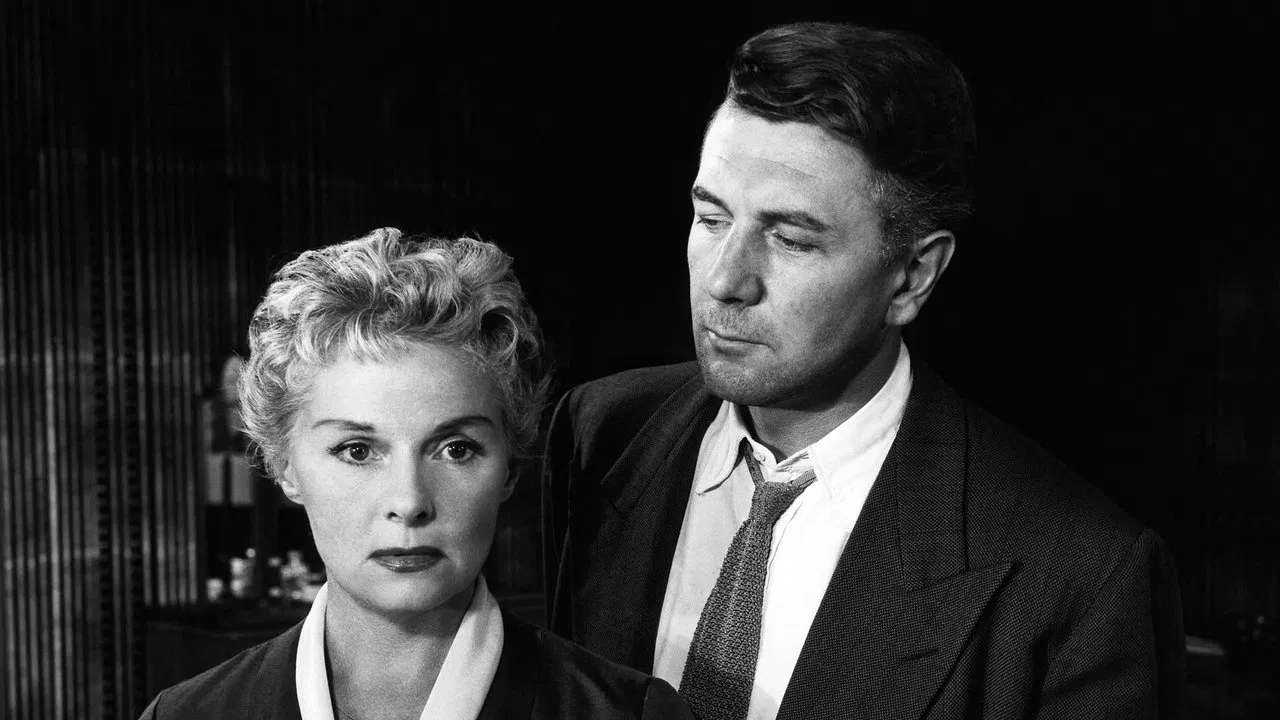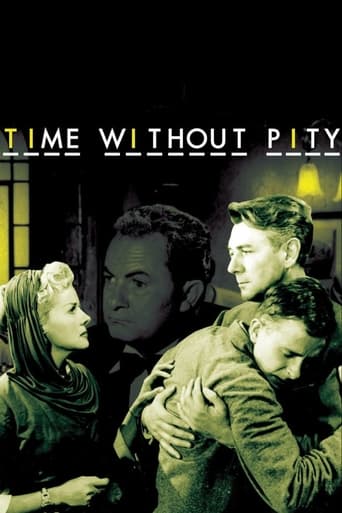Marketic
It's no definitive masterpiece but it's damn close.
Supelice
Dreadfully Boring
Sameer Callahan
It really made me laugh, but for some moments I was tearing up because I could relate so much.
Nicole
I enjoyed watching this film and would recommend other to give it a try , (as I am) but this movie, although enjoyable to watch due to the better than average acting fails to add anything new to its storyline that is all too familiar to these types of movies.
JohnHowardReid
Director: Joseph LOSEY. Screenplay: Ben Barzman. Based on the stage play, "Someone Waiting: by Emlyn Williams. Original music by Tristram Cary. Photography: Freddie Francis. Film editor: Alan Osbiston. Production designer: Reece Pemberton. Art director: Bernard Sarron. Hair stylist: Ivy Emmerton. Make-up artist: Alex Garfath. Production manager: Leigh Aman. Assistant directors: Adrian Pryce-Jones, Colin M. Brewer. Sound recording: Cyril Collick. Dubbing editor: Rusty Coppleman. Wardrobe: Irma Birch. Set continuity: Pamela Davies. Music conductor: Marcus Dods. Camera operator: Arthur Ibbetson. Still photographer: Ed Orton. Properties: Leander Richards. Assistant film editor: John Victor-Smith. Production secretary: Anthea Warren. Producers: John Arnold and Anthony Simmons. Executive producer: Leon Clore.A Harlequin Production, released in the U.K. through Eros: 13 May 1957. U.S. release through Famous Pictures. New York opening at the 55th Street Playhouse: 22 November 1957. Australian release through British Empire Films: 23 April 1959 (sic). Censored to 88 minutes in the U.K., but shown in a 92 minutes version in Australia. Alas, only the censored version is available on DVD – Odeon in the U.K., Homevision in the U.S.A.SYNOPSIS: A father has only 24 hours to save his son from the hangman's noose. COMMENT: A modestly budgeted but powerful thriller, "Time Without Pity" was directed with driving concentration by Joseph Losey, its drama encompassing the Greek unities and refracted through a series of distorting mirrors reflecting the superb portrayals of a first- rate cast including Michael Redgrave and Leo McKern.This was Losey's his first screen credit on a feature film in England, where he had taken refuge from the F.B.I.'s charge of alleged "Un-American activities" in the U.S.A. Losey had actually been sheltering in England for five years before he directed "Time Without Pity". In the meantime, he had directed a few British pictures without credit, as well as a short, "Man on the Beach", for which he did receive a credit. He was also engaged in stage work in London's West End where he produced two plays, "The Wooden Dish" and "The Night of the Ball".
vincentlynch-moonoi
When a film goes wrong, I find it's often a tossup as to who is to blame - the actors or the director. And what it comes down to, is whether it's one actor not doing a good job, or multiple actors not doing a good job. The former is likely the fault of the actor; the latter is likely the director's fault. In this film, I believer it's the director's fault.Certainly, Michael Redgrave is guilty of serious over-acting in this film. And to top it off, he seems very awkward throughout the film. Bill Williams as Lee CrenshawLeo McKern is also guilty of serious over-acting in this film. Paul Daneman seems terribly awkward, as well.On the acting front, that doesn't mean that every performance is bad. Ann Todd and Peter Cushing do well here.The story itself is decent, although trying to cram everything into a 24 hour time frame seemed awfully unreasonable. A 2-3 day story arc would have worked better and been more realistic.I've never been very impressed with British films from this era (they've gotten very good in recent years). And, I'm not very impressed with this film. It had potential, but the acting and direction ruined it. The one really high point -- a clever ending.
stephen-357
Time has no pity, no sympathy, no joy and no sorrow. It's passage denotes the brevity in which the living inhabit the earth. In TIME WITHOUT PITY, a young man is dong time in prison for a murder he did not commit. A correctional institution is about to put a stop to that young man's time at the behest of the State. A father caught between the daunting task of fighting the system for more time, and forgetting time altogether at the bottom of a whisky glass. A broken woman mourning the loss of time never spent with one who's out of time. Every character in this drama is lost somewhere in their own guilt ridden space and time, but director Losey makes sure his audience is always aware, littering the screen with watches and clocks ticking like a giant timebomb about to explode as the desperately pathetic father searches for a clue to disable the alarm. Lost in an alcoholic haze that is almost dreamlike in it's ability to paralyze action, he clumsily attempts to win back for his son the time he let slip away. Is it too late? An incredibly edgy, self-aware film, TIME WITHOUT PITY clearly states its objection to the State as executioner. From the opening scene, we know the son did not commit the murder, but neither the State, "You must keep your visit short . . . we don't want to upset the prisoner," the Church, "He's given himself over to more compassionate hands," or the anti-capital punishment advocates, "We're not interested in whether young Graham is innocent or guilty," seem to have a specific interest in the individual. To make matters worse, young Graham himself has given up hope and when his father pleads, "don't give up," he asks, "What difference would it have made if you had died when you were my age?" And this question gets to the core of the film; it's resonance heavily influencing the final pivotal scene.
Enrique Sanchez
This Emlyn Williams play about the relentless search for truth intertwines craftily in and out of the lives of some very imperfect human beings and builds to a surprising but inevitable ending.Redgrave, McKern, Todd, Plowright, Maxwell, Daneman and the rest of the cast all do well to bring this gritty black and white puzzle into focus. The son played by Alec McGowen was a bit over-the-top at times but then his character's madness required that.It's not a masterpiece...but I don't expect there are too many of those around. But what it does provide in dramatic tension elicits interest and compassion from the viewer until the very end.The Tristram Cary music must be cited here for its unflinching power to shake us up and take notice of the action on the screen. If there is any masterful work here it is the music.The only qualm was the less-than-satisfying editing which tended to bring the down the tension-building instead of heightening it.Yes, it was a low-budget movie...it's a cop-out to say that in view of the fine acting of the magnificent cast which redeemed it many times over.I'd recommend this to fans of film-noir, classic thrillers, mysteries and the British cinema.

